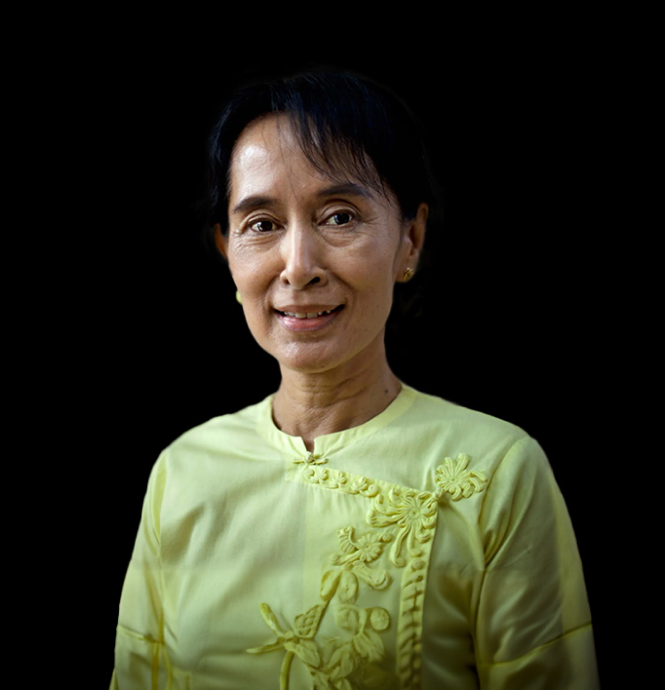350 5th Ave #4202
New York, NY 10118
T: +1 (212) 246-8486
E: [email protected]
Copyright 2024 Human Rights Foundation
350 5th Ave #4202
New York, NY 10118
T: +1 (212) 246-8486
E: [email protected]
Copyright 2024 Human Rights Foundation

Aung San Suu Kyi was one of the world’s most prominent political prisoners after spending nearly two decades under house arrest. She was released in November 2010. In 2015, she led the National League for Democracy (NLD) to victory in Myanmar’s first openly contested election in 25 years. She was deposed in a 2021 military coup. In addition to the Nobel Peace Prize, which she won in 1991 while imprisoned, she is the recipient of the Sakharov Prize for Freedom of Thought from the European Parliament, the US Presidential Medal of Freedom, the Václav Havel Prize for Creative Dissent, the Thorolf Rafto Memorial Prize, and countless other awards commemorating her work to support democracy and human rights. Following a military coup in February 2021, she has been serving a 27-year prison sentence after being convicted on trumped-up charges of illegal posession of walkie-talkies, breaking the COVID-19 pandemic rules, and electoral fraud.
No results found.
Hit enter to search or ESC to close